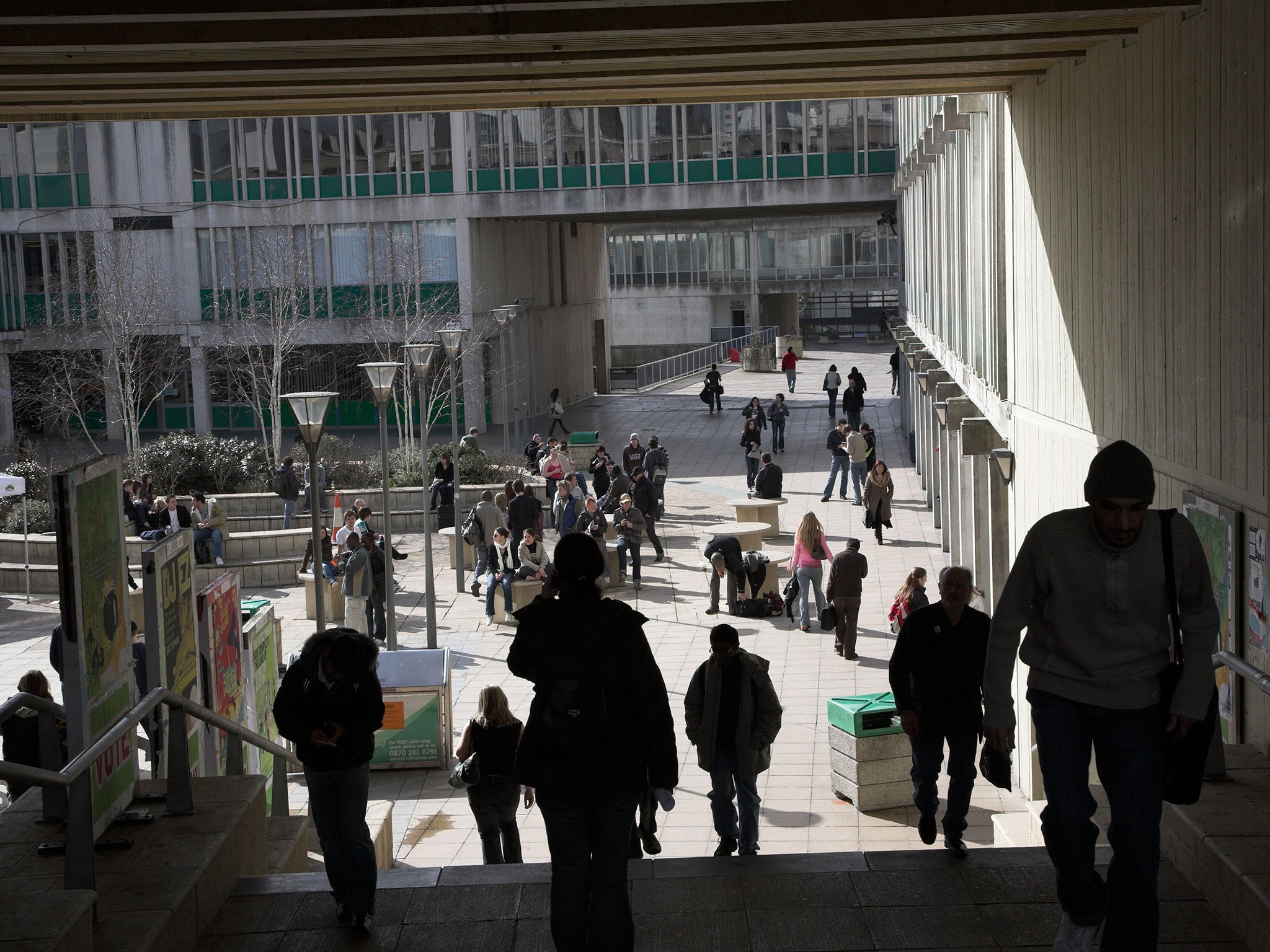MPs bridle at plans to make universities monitor 'extremism'
Supporters say that the powers are essential to monitor contacts between potential terrorists

Your support helps us to tell the story
From reproductive rights to climate change to Big Tech, The Independent is on the ground when the story is developing. Whether it's investigating the financials of Elon Musk's pro-Trump PAC or producing our latest documentary, 'The A Word', which shines a light on the American women fighting for reproductive rights, we know how important it is to parse out the facts from the messaging.
At such a critical moment in US history, we need reporters on the ground. Your donation allows us to keep sending journalists to speak to both sides of the story.
The Independent is trusted by Americans across the entire political spectrum. And unlike many other quality news outlets, we choose not to lock Americans out of our reporting and analysis with paywalls. We believe quality journalism should be available to everyone, paid for by those who can afford it.
Your support makes all the difference.New anti-terror laws requiring universities to tackle extremism on campus threaten to stifle freedom of expression, the Government has been warned by MPs and peers.
The Joint Committee on Human Rights also reiterated fears that moves to stop UK nationals suspected of terrorism returning to Britain could violate their human rights.
The warnings, published in a report today, came amid renewed calls for the Government to resurrect its “snoopers’ charter” plans in the wake of the Paris murders.
Supporters say that the powers are essential to monitor contacts between potential terrorists, such as the three men behind last week’s killings.
Plans to impose an statutory obligation on universities to prevent students from being drawn into terrorism, and to stop extremist speakers being given a platform, are contained in the Counter-Terrorism and Security Bill. Ministers fear that campuses can be a breeding ground for radical views which then spill over into violence.
But the cross-party committee said it was concerned at the “implications for both freedom of expression and academic freedom as a result of the applicability of the proposed new duty to universities”.
It warned of the legal uncertainty over definitions of terms such as “extremist” or “radical” and said the ambiguity would have a “seriously inhibiting effect on bona fide academic debate in universities”.
It called for universities to be taken off the list of institutions that would be statutorily required to tackle extremism.
The committee’s chairman, Labour MP Hywel Francis, said that the plans “might result in academic freedom and freedom of speech, which we know are both key to the functioning of a democratic society, being restricted”.
The committee said parts of the Bill, debated tomorrow in the Lords, to stop some British nationals re-entering the UK, even temporarily, risks violating their human rights. It called for an alternative scheme, overseen by a judge, of suspects being legally required to provide advance warning of their return to the UK.
The attacks in Paris have brought new calls for police and the security services to be given extra powers to monitor internet and email use.
Lord West of Spithead, the former security minister, called for the return of the Communications Data Bill, dubbed by critics a “snoopers’ charter” and blocked by the Liberal Democrat leader Nick Clegg.
The Labour leader, Ed Miliband, said he would be “cautious and considered” as Prime Minister in response to calls to give the security services more powers and resources.
Speaking from a demonstration in support of Paris, the Mayor of London Boris Johnson said: “I’m not interested in this civil liberties stuff. If they’re a threat, I want their emails and calls listened to.”
Last week the head of MI5, Andrew Parker, warned that extremists were planning attacks in Britain and that it was almost inevitable that one would eventually succeed.
David Cameron will meet intelligence chiefs today to discuss whether further action should be taken to increase security levels.
It was reported yesterday that a new 300-strong force is mooted to combat the terror threat. It would draw on special forces, armed police and intelligence officers. Its creation is due to be discussed by the National Security Council.
Join our commenting forum
Join thought-provoking conversations, follow other Independent readers and see their replies
Comments